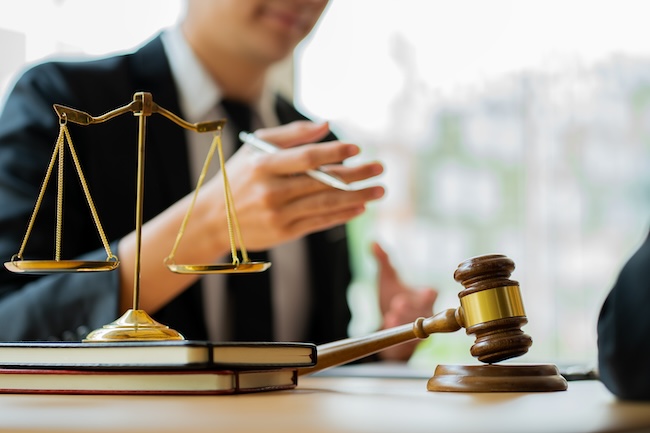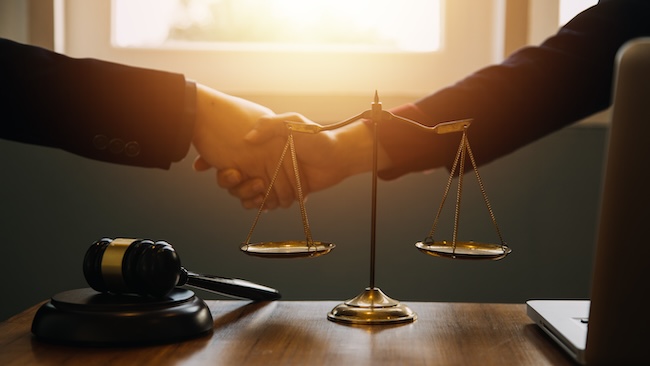Experienced Alpharetta Brain Injury Lawyers: Advocating for Life-Changing Injury Cases
Brain injuries, whether classified as traumatic brain injuries (TBI) or acquired brain injuries, are among the most severe and life-altering injuries an individual can face. These injuries often result from incidents such as car accidents, workplace accidents, fall accidents, or sports injuries, and can lead to lasting physical, cognitive, and emotional challenges.
Alpharetta brain injury lawyers specialize in representing victims and their families in brain injury lawsuits, helping them navigate the legal process and recover financial compensation for their losses. These experienced attorneys are equipped to handle personal injury cases stemming from closed head injuries, axonal injuries, and other severe conditions requiring extensive medical treatment and physical therapy.
The Impact of Brain Injuries
A serious brain injury can profoundly alter a victim’s quality of life, affecting their ability to work, engage in daily activities, and maintain relationships. Victims often face significant medical expenses, lost wages, and the need for ongoing medical care, contributing to immense financial strain. In addition, the emotional toll on both the victim and their family members can be overwhelming, with emotional distress and non-economic damages becoming key components of a brain injury claim.
Advocating for Compensation
Atlanta and Alpharetta personal injury attorneys have the combined experience and expertise to hold at-fault parties accountable for their negligence. Through meticulous review of medical records, accident details, and insurance policies, these attorneys pursue monetary recovery for their clients. They understand the intricacies of dealing with insurance companies and are adept at securing punitive damages when applicable.
Victims can benefit from a free consultation to evaluate their case and understand their legal options. Whwether the injury occurred due to a motor vehicle accident, a fall accident, or negligence in a workplace, the right law firm can guide clients through the legal process, ensuring their rights are protected at every stage.
Why Choose an Experienced Alpharetta Brain Injury Lawyer?
Choosing a dedicated brain injury attorney in Alpharetta means having a legal advocate who understands the complexities of brain injury cases. They work tirelessly to help victims recover compensation for:
- Medical bills
- Ongoing medical attention
- Life loss or diminished quality of life
- Compensation for emotional distress
- Economic losses such as lost wages
- Non-economic damages like pain and suffering
The legal team at an experienced Alpharetta law firm provides robust legal representation, ensuring victims and their families can focus on recovery while the attorneys handle the complexities of the case.
Types of Traumatic Brain Injuries
There are several types of brain injuries, each with different levels of severity and potential long-term effects:
Concussions: Concussions are considered mild TBIs, but they can still have serious consequences, especially if multiple concussions occur over time. Symptoms may include headaches, dizziness, confusion, and memory problems.
Contusions: A contusion is a bruise on the brain caused by a direct impact to the head. Depending on the severity, it can lead to swelling, bleeding, and increased pressure within the skull, which may require surgical intervention.
Penetrating Injuries: These injuries occur when an object, such as a bullet or a piece of debris, penetrates the skull and damages brain tissue. Penetrating injuries are often life-threatening and can result in severe and permanent impairments.
Diffuse Axonal Injury (DAI): DAI occurs when the brain rapidly shifts inside the skull, causing extensive tearing of nerve fibers. This type of injury is often seen in high-speed car accidents and can result in widespread brain damage and coma.
Anoxic Brain Injury: Anoxic brain injuries happen when the brain is deprived of oxygen for a prolonged period, leading to cell death. These injuries can occur in situations such as near-drowning, suffocation, or medical malpractice.
Acquired Brain Injury: An acquired brain injury occurs after birth due to internal factors such as infections or diseases. This type of injury is distinct from traumatic brain injuries, which result from external forces like accidents. Acquired brain injuries can lead to significant cognitive and physical impairments, depending on the severity and location of the damage.
Long-Term Effects of Brain Injuries
The long-term effects of a brain injury can be profound and may include cognitive deficits, such as memory loss, difficulty concentrating, and impaired judgment. Physical effects may include paralysis, loss of coordination, and chronic pain.
Emotional and behavioral changes, such as depression, anxiety, mood swings, and difficulty controlling impulses, are also common. For many brain injury victims, these challenges can make it difficult to return to work, maintain relationships, and enjoy a normal quality of life.
Pursuing a Personal Injury Claim
If you or a loved one has suffered a brain injury due to someone else’s negligence, it’s essential to pursue a personal injury claim to protect your rights and seek compensation for your losses resulting from the accident or injury.
A brain injury claim can help cover the costs of medical treatment, rehabilitation, lost wages, and other damages associated with the injury.
Establishing Liability
To successfully pursue a brain injury claim, you must establish that another party was responsible for the injury. Identifying the at fault party is crucial, as it allows you to seek compensation for damages and hold the responsible individual or entity accountable for their negligence or misconduct.
This typically involves proving that the defendant owed you a duty of care, that they breached that duty, and that the breach directly caused your injury. Depending on the circumstances, liable parties could include:
Drivers: If a brain injury occurred as a result of a car accident, the at-fault driver may be held liable.
Property Owners: In cases of slip and fall accidents or other incidents on someone else’s property, the property owner may be responsible if they failed to maintain safe conditions.
Employers: Brain injuries that occur in the workplace may be the result of employer negligence, such as failure to provide adequate safety equipment or training.
Manufacturers: If a defective product caused the brain injury, the manufacturer could be held liable under product liability law.
Medical Professionals: In cases of medical malpractice, such as surgical errors or failure to diagnose a condition that leads to a brain injury, healthcare providers may be held accountable.
Proving Damages
In addition to proving liability, you must also demonstrate the extent of the damages you have suffered as a result of the brain injury to secure appropriate financial compensation. This can include:
Medical Expenses: Brain injuries often require extensive medical treatment, including emergency care, surgeries, hospital stays, and ongoing rehabilitation. You may also need assistive devices, such as wheelchairs or communication aids, to help with daily activities. The cost of future medical care, including long-term care or home modifications, should also be factored into your claim.
Lost Wages: If the brain injury prevents you from returning to work, either temporarily or permanently, you may be entitled to compensation for lost wages. This includes not only the income you have already lost but also the future earning potential that has been diminished by the injury.
Pain and Suffering: Brain injuries can cause significant physical pain and emotional distress. Compensation for pain and suffering takes into account the impact of the injury on your overall quality of life, including the psychological effects of living with a brain injury.
Loss of Enjoyment of Life: Many brain injury victims are unable to participate in activities they once enjoyed, such as hobbies, sports, or social events. Compensation for loss of enjoyment of life seeks to address the emotional and psychological toll of these limitations.
Loss of Consortium: If the brain injury has affected your relationship with your spouse or other family members, you may be entitled to compensation for loss of consortium. This includes the loss of companionship, affection, and support that you and your loved ones have experienced as a result of the injury.
Compensation for Traumatic Brain Injury Lawsuits
When pursuing a claim with the help of a traumatic brain injury lawyer or a traumatic brain injury attorney, understanding the potential compensation is critical. Traumatic brain injuries (TBIs) often result in significant medical expenses, long-term care needs, and a profound impact on the victim’s quality of life. Compensation aims to address both the financial and non-financial damages resulting from the injury.
Victims of TBIs may be entitled to economic damages, which include costs for emergency care, ongoing medical treatment, physical therapy, and any necessary modifications to the home or workplace to accommodate disabilities. Additionally, lost wages and diminished earning capacity due to the inability to work can be factored into the settlement.
Non-economic damages are also a crucial component of compensation. These damages address the pain and suffering, emotional distress, and loss of enjoyment of life caused by the injury. A skilled traumatic brain injury lawyer or traumatic brain injury attorney will emphasize these factors to ensure the victim receives fair and comprehensive compensation.
In some cases, punitive damages may be awarded. These are designed to punish the negligent party, such as a reckless driver, a negligent employer, or a defective product manufacturer, and deter similar behavior in the future. Such claims often require the expertise of a dedicated traumatic brain injury lawyer or traumatic brain injury attorney to present compelling evidence.
The compensation secured through a lawsuit can also account for the long-term impact of a TBI, including the cost of assistive devices, psychiatric care, and future medical treatments. For families, this can include financial relief for caregiving responsibilities and the emotional toll of supporting a loved one with a life-altering injury.
Working with an experienced traumatic brain injury lawyer ensures that all aspects of your claim are thoroughly evaluated and strategically presented. Whether negotiating with insurance companies or advocating in court, a traumatic brain injury attorney focuses on maximizing the compensation needed for a victim’s recovery and future well-being.
The Role of an Alpharetta Brain Injury Lawyer
Navigating the legal process after a brain injury can be overwhelming, especially when you are dealing with the physical and emotional challenges of recovery.
It is crucial to consult with experienced Atlanta brain injury lawyers for those who have suffered a traumatic brain injury to navigate the complexities of personal injury lawsuits and obtain potential compensation.
An experienced brain injury lawyer in Alpharetta can provide invaluable support, guiding you through each step of your claim and advocating for your best interests.
Case Investigation and Evidence Gathering
A thorough investigation is essential to building a strong brain injury claim. It is crucial to promptly address a personal injury case to preserve evidence and remain within the statute of limitations. Your lawyer will work to gather all relevant evidence, including medical records, accident reports, witness statements, and expert testimony.
In some cases, accident reconstruction specialists may be called upon to recreate the events leading to the injury, providing a clearer picture of how the injury occurred and who is at fault.
Negotiating with Insurance Companies
Insurance companies often attempt to minimize the amount they pay out on claims, even in cases of severe brain injuries. Legal representation is crucial throughout the personal injury claims process to ensure maximum compensation and to navigate communications with insurance companies effectively. Your lawyer will handle all communications with the insurance company, ensuring that your rights are protected and that you receive a fair settlement offer.
If the insurance company refuses to offer a reasonable amount, your lawyer may recommend taking the case to court.
Trial Representation
If your case goes to trial, having an experienced brain injury lawyer on your side is crucial. Pursuing a personal injury lawsuit involves understanding the statute of limitations as well as Georgia’s personal injury laws, filing the necessary procedures, and navigating the complexities that differentiate it from insurance claims. Your lawyer will present your case to the jury, using the evidence gathered during the investigation to demonstrate liability and the extent of your damages.
Throughout the trial, your lawyer will advocate for the maximum compensation available under the law, helping to secure the financial resources you need to move forward with your life.
Compassionate Support and Guidance
At Horst Shewmaker, we understand the profound impact that a brain injury can have on your life and the lives of your loved ones. We are dedicated to providing legal support for brain injury survivors facing the challenges of a brain injury.
We are committed to providing compassionate support and personalized legal representation, helping you navigate the complexities of the legal system with confidence. Our goal is to alleviate the stress of the legal process, allowing you to focus on your recovery and rebuilding your life after a brain injury.
Advocacy for Brain Injury Survivors
Let experienced brain injury accident attorneys help you successfully recover compensation and seek justice for the pain and suffering caused by another person’s negligence. Trust in their legal experience to provide the support and representation necessary for your brain injury case in Alpharetta, GA.
Frequently Asked Questions About Brain Injury Litigation
What does a brain injury lawyer do for traumatic brain injury victims?
A brain injury lawyer represents individuals who have suffered traumatic brain injuries (TBI) due to accidents, negligence, or medical malpractice. They handle every aspect of the case, from gathering medical evidence and calculating damages to negotiating with insurance companies and representing clients in court. These attorneys focus on securing compensation for medical expenses, rehabilitation, lost wages, and the pain and suffering caused by a TBI.
Can I sue for a brain injury caused by someone else’s negligence?
Yes, you can sue for a brain injury if it was caused by another party’s negligence, such as in a car accident, slip and fall, or workplace incident. To build a strong case, you need to prove that the negligent party owed you a duty of care, breached it, and directly caused your injury. An experienced brain injury lawyer can help establish liability and ensure you receive compensation for your damages.
What types of compensation are available in brain injury cases?
Compensation in brain injury cases typically includes economic damages such as medical bills, therapy costs, and lost wages, as well as non-economic damages for pain, suffering, and emotional distress. In cases of gross negligence or intentional harm, punitive damages may also be awarded to punish the responsible party and deter similar conduct.
How long does it take to resolve a brain injury lawsuit?
The duration of a brain injury lawsuit depends on the complexity of the case, the severity of the injury, and whether the case goes to trial. Some claims are settled in months, while others may take years. A brain injury lawyer will work diligently to expedite the process while ensuring you receive fair compensation for your injuries.
Do I need a specialized lawyer for a brain injury case?
Yes, hiring a specialized brain injury lawyer is crucial due to the complex nature of these cases. Brain injuries often require extensive medical documentation, expert testimony, and a deep understanding of how the injury impacts a person’s life. A lawyer with expertise in brain injury litigation can effectively navigate these complexities and maximize your compensation.
What should I do immediately after suffering a brain injury?
After suffering a brain injury, seek immediate medical attention to diagnose and treat your condition. Document the incident, including photographs, witness accounts, and medical records. Avoid speaking to insurance adjusters without legal representation. Contact a brain injury lawyer promptly to evaluate your case and protect your rights.
Can I file a brain injury claim if the symptoms appear later?
Yes, you can file a claim if symptoms of a brain injury emerge after the incident. Many brain injuries, particularly mild TBIs or concussions, have delayed symptoms. As long as you file within the statute of limitations for your jurisdiction, you can pursue compensation. A brain injury attorney can help prove the link between the accident and the delayed symptoms.
What is the statute of limitations for brain injury cases?
The statute of limitations for brain injury cases varies by state but typically ranges from one to three years from the date of the injury or its discovery. Failing to file within this time frame can bar you from pursuing compensation. Consulting a brain injury lawyer promptly ensures you meet all legal deadlines and preserve your right to compensation.
Contact an Alpharetta Brain Injury Lawyer Today
If you or a loved one has suffered a brain injury in Alpharetta, it’s essential to seek legal advice as soon as possible. The sooner you contact an experienced brain injury lawyer, the better your chances of securing the compensation you deserve. Consulting experienced Atlanta brain injury attorneys is crucial to secure financial compensation for clients suffering from brain injuries due to another person’s negligence.
At Horst Shewmaker, we are dedicated to fighting for the rights of brain injury victims and their families, providing the skilled legal representation you need to pursue justice and financial recovery.
Don’t wait to take action. Contact Horst Shewmaker today at (404) 400-1175 to schedule a free consultation with one of our experienced Alpharetta brain injury lawyers. We will review your case, discuss your legal options, and help you understand the steps involved in pursuing a brain injury claim.
With our team on your side, you can trust that your case is in capable hands, and we will work tirelessly to secure the best possible outcome for you and your family.













